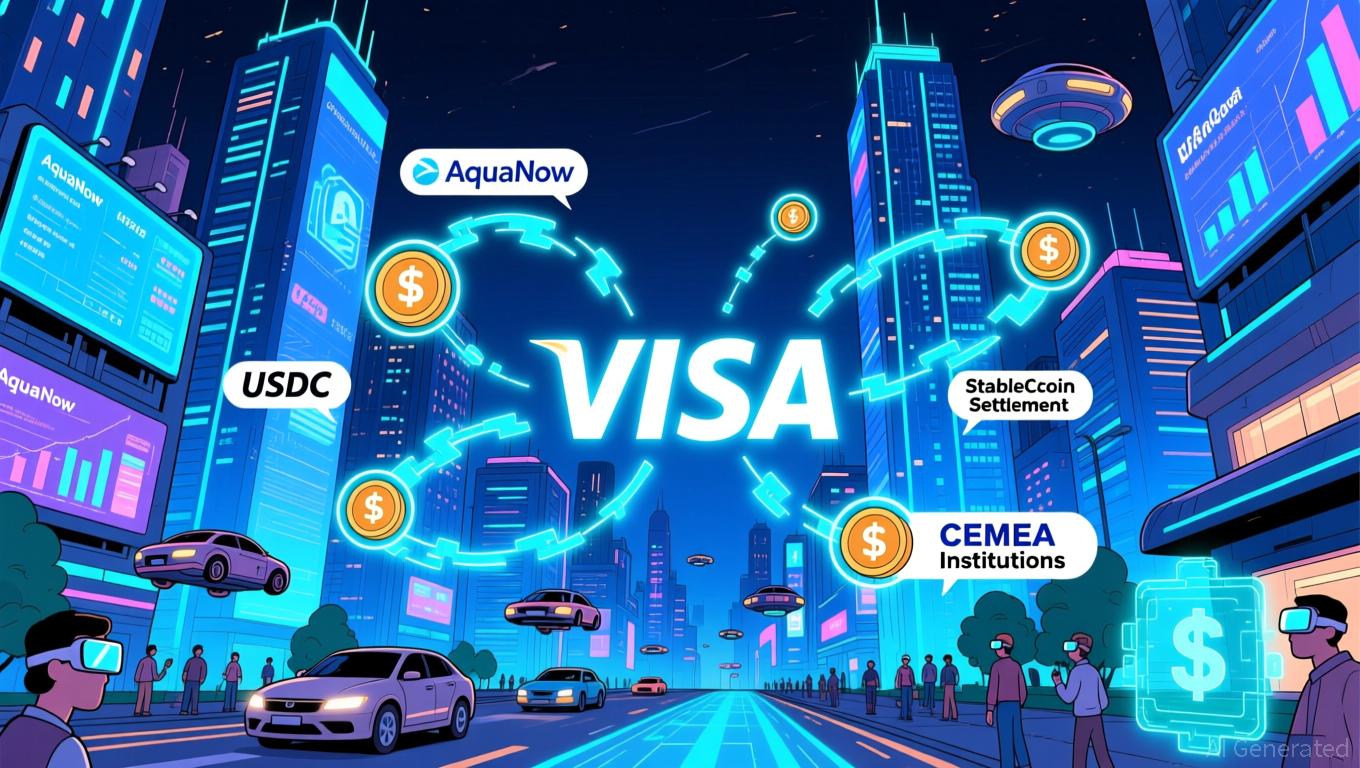Why Is Internet Computer (ICP) Experiencing a Surge as Interest in Decentralized Computing Grows
- Internet Computer (ICP) surged 30% in Q3 2025 driven by technical upgrades, institutional adoption, and regulatory clarity. - Technical upgrades (Fission, Stellarator) boosted computing/storage by 50%, while AI integration (Caffeine AI) enabled on-chain machine learning. - Cross-chain partnerships (Chain Fusion, Google Cloud) and institutional collaborations (Tether, Parfin) expanded ICP's enterprise utility and TVL to $237B. - U.S. CLARITY Act and EU MiCAR reduced regulatory ambiguity, accelerating inst
Advancements in Blockchain Infrastructure: Embracing Scalability and AI
ICP’s momentum is fueled by significant technical progress that tackles major challenges in decentralized computing. Recent network enhancements, including Fission and Stellarator, have

The platform’s hybrid architecture—which merges scalability, interoperability, and an AI-centric infrastructure—has also led to new cross-chain collaborations. For example, Chain Fusion facilitates connections with
Institutional Momentum: Strategic Partnerships and Governance Evolution
ICP’s appeal to institutions has grown through targeted alliances and governance structures tailored to institutional requirements. The Network Nervous System (NNS), ICP’s decentralized governance mechanism,
Collaborations with leading financial entities further highlight ICP’s institutional traction. For instance, partnerships with Tether and Parfin in Latin America—a region that has processed $1.5 trillion in
Policy Developments and Regulatory Certainty
The financial environment in 2025 has been influenced by policy actions that have
On a global scale, clearer regulations in Europe (through the EU’s MiCAR) and Asia (such as Hong Kong’s stablecoin framework) have further legitimized blockchain technology. Major institutions like BlackRock, UBS, and MicroStrategy have
Obstacles and Future Prospects
Although ICP has gained significant traction, it still contends with challenges such as
Summary
The rapid growth in ICP’s value and adoption highlights the evolution of decentralized computing as a practical infrastructure solution for businesses and institutions. By merging technological innovation, strategic alliances, and regulatory compliance, ICP has established a distinct position within the blockchain space. As the need for decentralized computing continues to expand, ICP’s responsiveness to institutional requirements and regulatory changes is likely to secure its place as a foundational element of future digital infrastructure.
Disclaimer: The content of this article solely reflects the author's opinion and does not represent the platform in any capacity. This article is not intended to serve as a reference for making investment decisions.
You may also like
Bolivia’s Digital Currency Bet: Navigating Volatility with Stable Solutions
- Bolivia's government permits banks to custody cryptocurrencies and offer crypto-based services, reversing a 2020 ban to combat inflation and dollar shortages. - Stablecoin transactions surged 530% in 2025, with $14.8B processed as Bolivians use USDT to hedge against boliviano depreciation (22% annual inflation). - State-owned YPFB and automakers like Toyota now accept crypto payments, while Banco Bisa launches stablecoin custody to expand financial inclusion for unbanked populations. - The policy faces c

Switzerland's Postponement of Crypto Tax Highlights Worldwide Regulatory Stalemate
- Switzerland delays crypto tax data sharing until 2027 due to ongoing political negotiations over OECD CARF partner jurisdictions. - Revised rules require crypto providers to register and report client data by 2026, but cross-border data exchange remains inactive until 2027. - Global alignment challenges exclude major economies like the U.S., China, and Saudi Arabia from initial data-sharing agreements. - Domestic legal framework passed in 2025, but partner jurisdiction negotiations delay implementation u

Visa and AquaNow Upgrade Payment Infrastructure through Stablecoin Integration
- Visa partners with AquaNow to expand stablecoin settlement in CEMEA via USDC , aiming to cut costs and settlement times. - The initiative builds on a $2.5B annualized pilot program, leveraging stablecoins to modernize payment infrastructure. - Visa's multicoin strategy aligns with industry trends, as regulators and competitors like Mastercard also explore stablecoin integration. - Regulatory progress in Canada and risks like volatility highlight evolving opportunities and challenges in digital asset adop

Bitcoin Updates: Large Holder Liquidations and Retail Investor Anxiety Lead to a Delicate Equilibrium in the Crypto Market
- A long-dormant crypto whale sold 200 BTC after a 3-year hibernation, intensifying market scrutiny over investor sentiment and liquidity shifts. - Bitcoin struggles above $92,000 amid weak technical indicators, mixed ETF flows ($74M inflow for BTC vs. $37M ETH outflow), and diverging institutional/retail behaviors. - Whale activity highlights fragile market balance: large holders accumulate BTC while retail investors liquidate, with over $557M in BTC moved from Coinbase to unknown wallets. - Technical bea